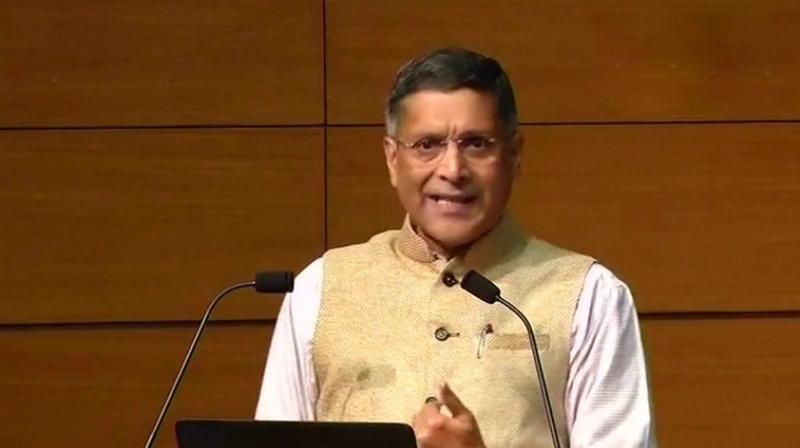New ways needed to raise farm income, says Subramanian
Job creation and stigmatised capitalism' two other big challenges.

New Delhi: Outgoing chief economic adviser Arvind Subramanian on Tuesday said that farm income is under stress and improving returns for farmers is a big challenge, which calls for joint efforts by the Centre and states. He also listed generating more jobs as another challenge before the government which faces a “stigmatised capitalism.”
Echoing the prevailing sentiment in public sector, particularly state-owned banks, he said the decision making is cautious now and almost paralysed due to fear of taking decisions that may benefit any one in the private sector which later could be questioned and challenged.
Talking about challenges in the agriculture sector, Subramanian, in an exclusive interview to FC, said: “In the medium term, agriculture is a big challenge. In the first two years of this government, there were weak monsoons, so farm incomes were adversely affected. But in the next two years when the monsoon was good, we still saw prices coming down. So, we have seen regardless of what monsoon or agriculture output does, farm income seems to be under stress. We need to understand this and find ways of raising farm income. My own feeling is that there is more role for direct benefit transfer. The Telengana scheme should be adopted and modified which also requires cooperative federalism. Agriculture is a big challenge where the Centre and states should work together,”.
Prime minister Narendra Modi has shared a vision on doubling farm income by 2022. In the budget, the government had announced 1.5 times higher MSP price for 24 crops to give higher support price for improving their incomes of farmers. Earlier this month, the cabinet announced a record hike Rs 200/ quintal in paddy MSP.
On job front, The CEA, who authored the Economic Surveys, said there is not enough data to speak conclusively on job growth as we have not produced consistent data on jobs.
“The next big survey which will contribute to the 2011-12 employment-unemployment survey which will be comprehensive household based employment that will come out later this year or early next year. That will be the correct comparison on the reference point to compare with the past,” said Subramanian.
“In the Economic Survey we did take stats of EPFO, ESIC data where we measured the stats of formal employment. And these numbers were very high. The share of formal sector employment – private non-farm workforce was between 30-50 per cent. But these are not employment creation numbers, are just stats of employment. Through the annual employment numbers we can get a sense once the survey comes out,” he added.
There is employment challenge in the economy, he said. “But if you can revive investment and growth, the employment challenge can be more easily addressed,” he added.
Forthcoming on “stigmatised private sector” he said privatisation whether the airlines or banking is proving to be very difficult.
“In India the private sector is stigmatised, has a bad name and the consequence of that is it becomes very difficult to give the private sector a greater role in taking over public sector assets. So, the privatisation whether the airline sector or banking is proving to be very difficult and this stigmatised capitalism is the reason.
“This is a big challenge for our system …public sector bank managers, officers are very reluctant to take decisions on private sector because they fear one of these investigating agencies would be after them for that. So, the public sector decision making is very cautious and almost paralysed and because of that the judiciary is and will get a greater role in making these decisions,” he said.

